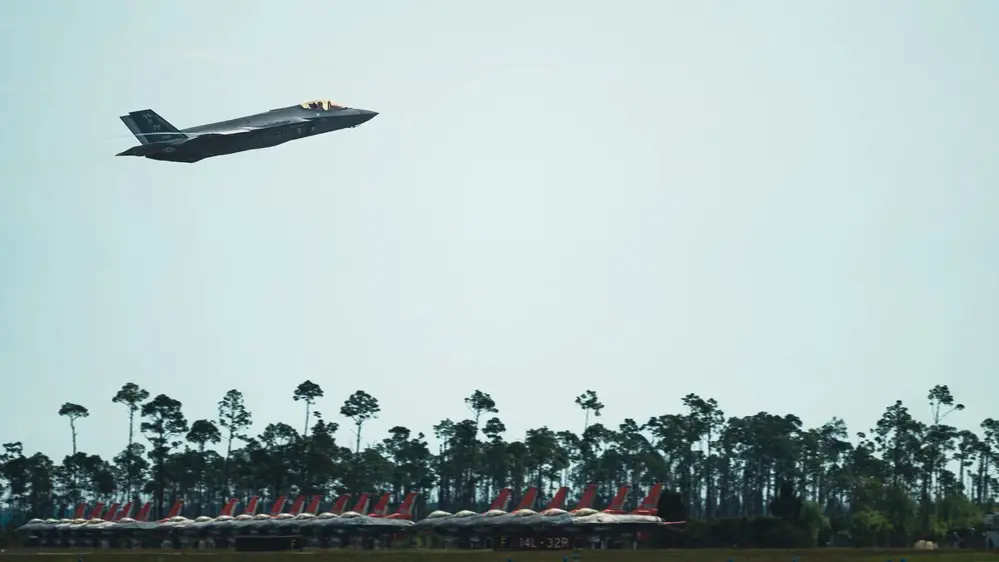In a triumphant display of endurance and precision, the 95th Fighter Squadron reached a momentous milestone May 14, 2024, when the unit completed 1,000 flight hours in the F-35A Lightning II. The squadron, which stood up in June 2023 and received the first aircraft that August, hoped to reach the milestone in 10 months, but completed the goal six weeks ahead of schedule, showcasing the unit’s dedication to meet National Defense Strategy objectives and stay competitive in the Great Power Competition. The 325th Fighter Wing mission has adapted over the last several years due to the devastation of Hurricane Michael. While the natural disaster allowed leaders to start re-imaging what military installation could look like, it paved the way to bring new assets, personnel and capabilities now. With only a handful of aircraft, the 95th Fighter Generation Squadron ensured the F-35s were able to get airborne, flying missions whenever possible while also managing necessary training for maintenance and finding innovative solutions with the 325th Logistics Readiness Squadron to acquire parts when needed. The lack of aircraft was not a hinderance to any unit, displaying how dedicated Team Tyndall is to its new combat-coded mission. Powell also noted all of these factors have allowed the approximately a 35% increase in the number of flights originally projected.
“There is a very specific set of learning objectives for each sortie. When we are talking about what’s really important, it’s getting the guys the mission training that they need to be effective in combat. The [team] is getting high-end combat level training with a very limited resource set. We are flying at 100 percent utilization everyday with our jets,” Dillon said. “We don’t have a full contingent [of aircraft] so we’re flying a significantly different flow pattern than a normal combat Air Force unit would fly. What [maintenance] has generated for the amount of sorties to push through per month, they are exceeding expectations,” explained Maj. Jerrod Dillon, 95th FS director of operations.
“It’s a big compliment to the team that we, at a faster rate than we thought we could, achieve 1,000 hours. We’ve kept the jets healthy through a solid maintenance team…and the logistics side, to have the supply chain open…and our operations support squadron assisting us in getting airspace. We’re doing really well as a team. If you look down three or four years down the road, it’s not going to just be a few aircraft on the ramp; it’s going to be 70 plus aircraft and huge fighter squadrons…sending squadrons of folks from the maintenance side and operational side out the door on a regular basis. The biggest transition [I’ve seen here] is a base that has just been dealing with training and the recovery of a base, to now really getting postured for a huge combat hub; a base starting to open their eyes and understand this new mission,” said Lt. Col. Michael “CAIN” Powell, 95th FS commander.

The number of sorties and available flight hours allows for more training and enables the unit to hit objectives sooner than planned. Participating in exercises like Checkered Flag and joint trainings off-station, like the one recently completed in Wisconsin, are all requirements the unit is must complete. Reoptimizing the base presents a unique opportunity for the total-force team as they forge a new path with premier aircraft, buildings and processes, emphasized Powell. He remarked that the change allows for careful consideration and improvement upon existing practices rather than simply following established routines. This milestone is one of many accomplished goals as the 325th FW continues to build up F-35 operations and transitions into a readily deployable wing. Until that time, the base is pushing its capabilities to generate readiness and develop people and capabilities at a faster and greater rate than before.













